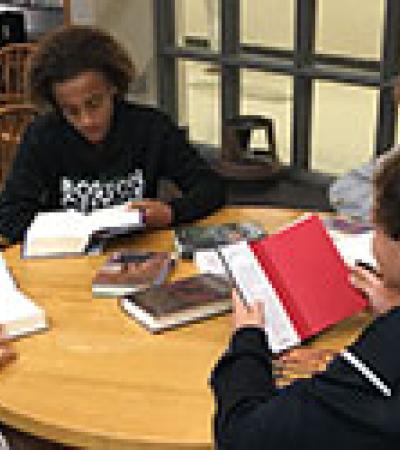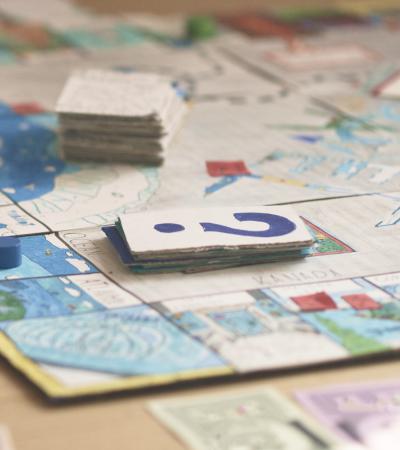Everyone expects to be able to check out books and DVDs from their library. But telescopes? Cake pans? Litter clean-up kits? Below are some creative examples of materials being circulated in libraries around the country.
Do you circulate something unique at your library? Tell us in the comments.
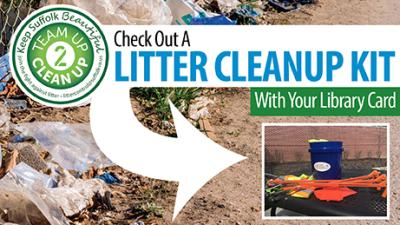
Litter Clean-Up Kit — Suffolk (Va.) Public Library
Contents: Litter grabbers, safety vests, bags and a bucket.
Cost: The Suffolk Litter Control Office received a grant that enabled the library to purchase the kits' contents and covered the cost of marketing materials, such as banners and signs, says Litter Control Coordinator Wayne G. Jones. The office will replace any supplies if needed, so there should be no cost to the library except for minimal employee time.
How is it working?: This kit started circulating in May 2018. Check-outs are available for adults only, and patrons are required to sign a paper waiver when checking out the kits. The kit includes an information sheet that details its contents and encourages patrons to record what they clean up. The kits may be checked out for three weeks at a time and have circulated 17 times since May.
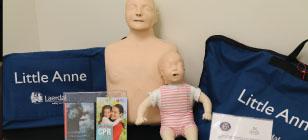
CPR Training Kit — Orland Park (Ill.) Public Library
Contents: Each kit comes in a duffel bag with an informational DVD, adult/child manikin, and infant manikin for practicing lifesaving techniques.
Cost: Two CPR Training Kits were donated to the library by the Orland Fire Protection District. “A lieutenant from the Orland Fire Protection District, who was the instructor for CPR training throughout the village, first approached us about putting the kits into the collection. He and I shared a passion for getting the word out to others about knowing how to perform the lifesaving skill,” says Assistant Library Director Mary G. Adamowski.
How is it working?: The CPR kits were introduced about 10 years ago and are popular with scouting troops and young babysitters. Each kit can be checked out for up to three weeks to allow the user enough time to practice and feel comfortable with the equipment. “I strongly encourage librarians to seek partnerships with their local fire district about starting a circulating collection of CPR kits,” Adamowski says. “So many people think they may never be in a position to use this skill, but it is always good to be prepared and ready.” Highlighting the kit in the library’s newsletter has helped to increase circulation.
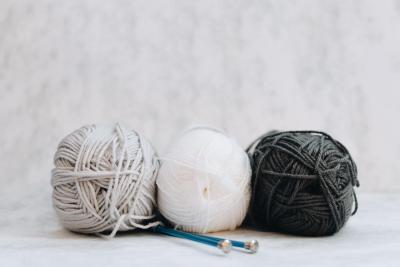
Arts and Crafts Kit — Topeka and Shawnee (Kan.) Public Library
Contents: Instructions, books, yarn, paper and tools, such as knitting needles, embroidery hoops and rubber stamps.
Cost: Varies. Some kits may start with donated supplies, and some may have to be ordered.
How is it working?: The most popular kits include crochet, knitting, cross-stitch and embroidery, according to Art Librarian & Book Coordinator Brea Black. “The idea with the kits is try-it-before-you-buy-it, so we’re not providing enough yarn to complete a project; we’re offering patrons the opportunity to try something to see if they like it well enough to buy supplies on their own,” Black says. These kits started circulating in 2013.
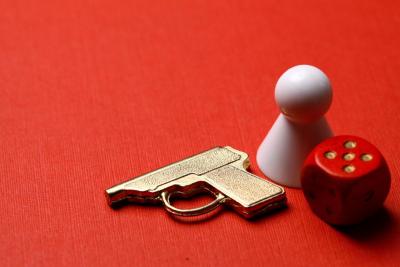
Discovery Kits — Avalon (N.J.) Free Public Library
Discovery kits and are designed to introduce new concepts and activities to all ages. “How To Throw A Mystery Party” is one example of an adult Discovery Kit.
Contents: “How to Throw A Mystery Party” contains six clue pages, eight character cards/descriptions, a party planner booklet, a CD and the book “Wine Folly.” The CD contains four audio tracks that are meant to be played at the beginning of the game for introduction and atmosphere. The book is about wine and gives patrons ideas of wich foods pair well with certain wines.
Cost: The murder mystery kit cost around $30 for the game plus $15 for the clear box in which it circulates.
How is it working?: Shannon Nagle, the library’s assistant director, said she’s received positive feedback from patrons; one even used this kit for a New Year’s Eve party. Nagle suggests you pay attention to how often kit items may need to be replaced. If you are working with a small budget, avoid items that need to be replenished often. Also, it’s smart to scan and store instruction booklets and other paper pieces when possible so you can reproduce them if they go missing without having to purchase the game/item again.
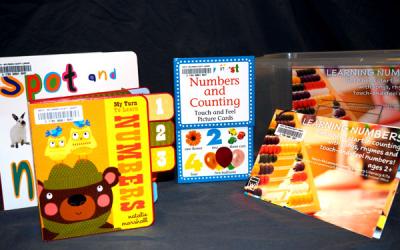
Literacy Kits — Waco-McLennan (Texas) County Library
Contents: Materials to help with early childhood literacy, such as two to three books, manipulatives, instructional material for adults and resources about reading levels at various ages.
Cost: A $2,000 grant from the Waco Rotary Club covered the materials and books. A few volunteers from the Rotary Club helped assemble the kits, reducing staff time.
How is it working?: The library circulates 12 kits, each based on subjects to build early literacy skills such as letter recognition, shapes, counting, sequencing, colors, matching and numbers. According to Director of Library Services Essy Day, the kits have been checked out more than 600 times at various branches. They are especially popular among teachers. Day advises brainstorming with community partners for this project because it’s great PR for them (and the library) to work together on a project that is so positive.
Book Clubs to Go — Ann Arbor (Mich.) District Library

Contents: Ten copies of the featured book, one copy of a movie DVD (if available) and a resource folder with summaries, reviews and discussion questions.
Cost: Cost varies depending on the books and DVDs; on average, a kit costs between $100 and $130. When purchased in bulk, canvas totes cost the library around $6 per bag. There is little to no upkeep cost if you buy backup copies ahead of time or pull used copies from duplicates in the circulating collection.
How is it working?: The Ann Arbor District Library has been circulating Book Club to Go kits since 2008, and they are still going strong. Collection Manager Sara Wedell says the kits typically get positive feedback, and the library often receives request for kits with new titles. “It's a great way to support local book groups, and it encourage groups to take on book discussions without requiring people to purchase or locate copies on their own,” says Wedell. If you are thinking of trying this at your library, Wedell suggests repurposing extra copies of books purchased for demand into book club kits once they decline in popularity. You can also find discussion questions for many books on publishers’ websites, which reduces staff time in developing supporting resources.
Experience Bags — Chelmsford (Mass.) Public Library

Contents: Books, movies, DVDs and/or video games on a theme/location, packaged in a tote to create an “experience.” For example, the “Taste of Italy” Experience Bag includes a cookbook, a book on Italian wine, an opera CD, a food-themed novel and a couple of movies featuring Italian food.
Cost: About $100 per kit.
How is it working?: The library introduced Experience Bags around 2016. Vickie Turcotte, the library’s assistant director of support services, said the bags used to get checked out only a few times a year, but interest has picked up since they started putting them on display. “Before, we had just a rack of tags describing each bag, but now that folks can see them, circulation has improved,” she says.
Cake Pans — The Public Library of Brookline (Mass.)

Contents: Cake pan and photos of finished decorated cakes for inspiration. Some cake pans come with recipes.
Cost: Most pans are donations from the public.
How is it working?: The cake pans were introduced to the library in 2015, and there are currently 58 of them in circulation, according to Supervisor of Collection Development Colin Wilkins. Although Brookline hasn’t had many issues with the pans being returned clean, Colin suggests establishing a clear policy that they should be returned ready for the next person to use. Also, throwing a party with cakes baked with the pans is a great way to launch the collection. Placing the pans somewhere visible can help with circulation; the library displays the pans in a sturdy, hanging fixture, as opposed to displaying them on shelves.

Musical Instruments — Port Washington (N.Y.) Public Library
Contents: A musical instrument with instructions and supplies. One kit contains a Penguin ukulele, two instructional books and an electronic tuner. Another contains a Yamaha acoustic guitar, instructional book and DVD, guitar picks and electronic tuner.
Cost: The library created the two kits for around $425: $300 for the guitar, $100 for the case and $25 for the rest of the materials (a case, tuner and instructional materials.) The ukulele was donated. Upkeep costs include occasional string replacement.
How is it working?: The program is fairly new but so far it has been successful, according to Technology Librarian Melanie Davidoff. While the ukulele is primarily popular with children, the guitar is popular among all ages. “Just dive in!” Davidoff says. “It’s easy to overthink implementing a program like this, but we leaped into it, and our patrons have appreciated having the option available.”
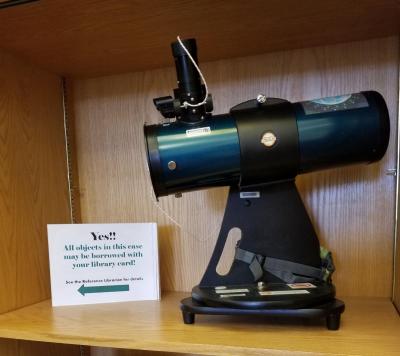
Telescopes and Microscopes — Bangor (Maine) Public Library
Contents: Patrons can check out a telescope or microscope with supporting items. The telescope comes with an instruction manual, constellation book and star charts. The digital microscopes come with CD and/or flash drive to download software to a home computer.
Cost: These kits were grant funded; one telescope costs around $300.
How is it working?: One telescope and three microscope kits have been in circulation since about 2015. The telescopes get checked out one to two times a month, and the microscopes about two to three, according to Karen Corbett, acting reference department head. Adults tend to check out these kits and use them with their kids. Before they can be checked out, patrons are taught how to hold the telescope/microscopes properly and how to use the kit. Bangor Public Library promotes the kits in their newsletter, on the radio and sometimes on a TV news slot about library programs and events.

